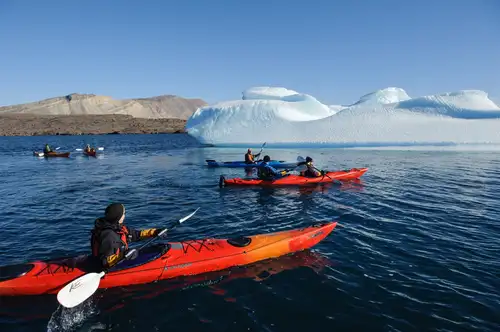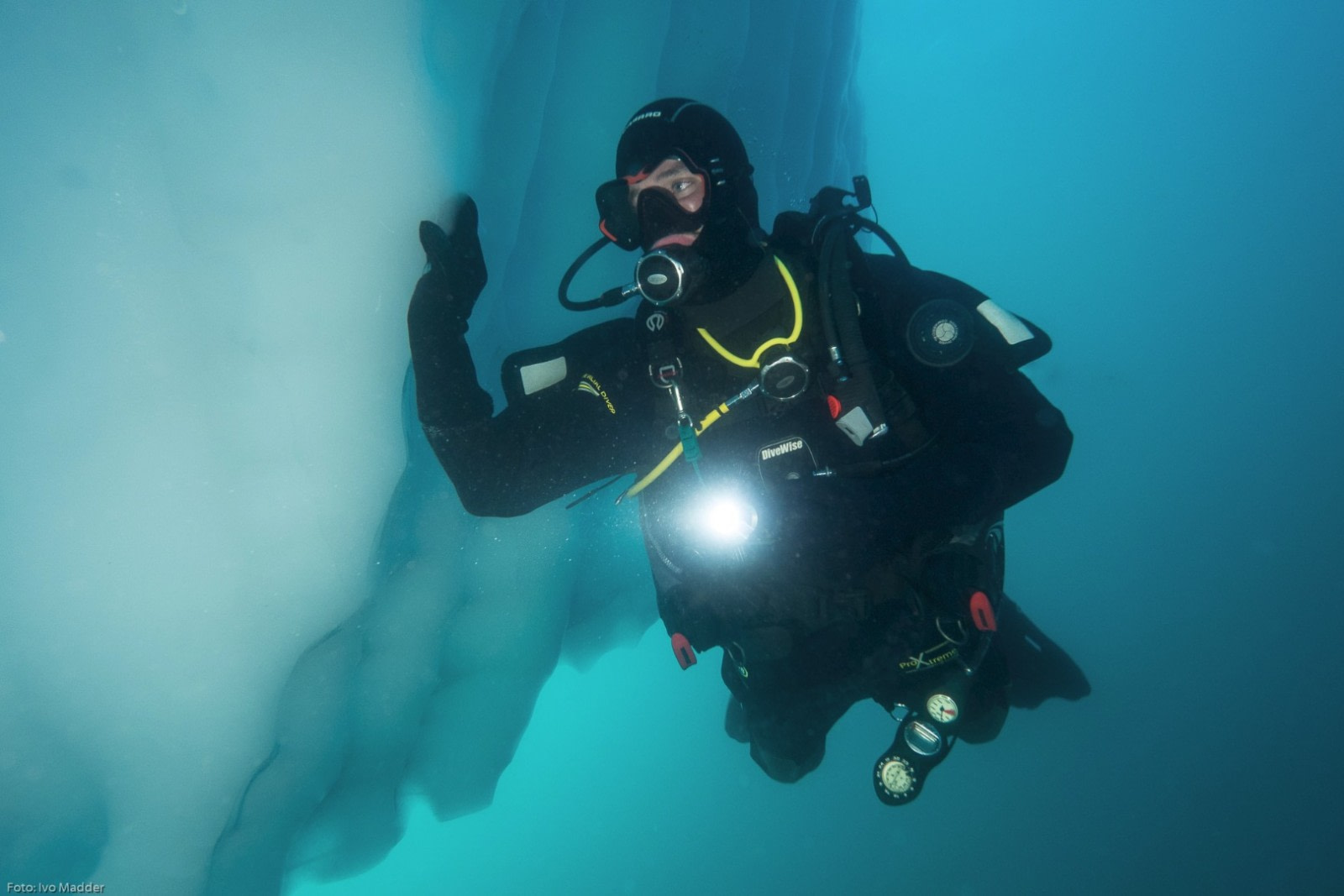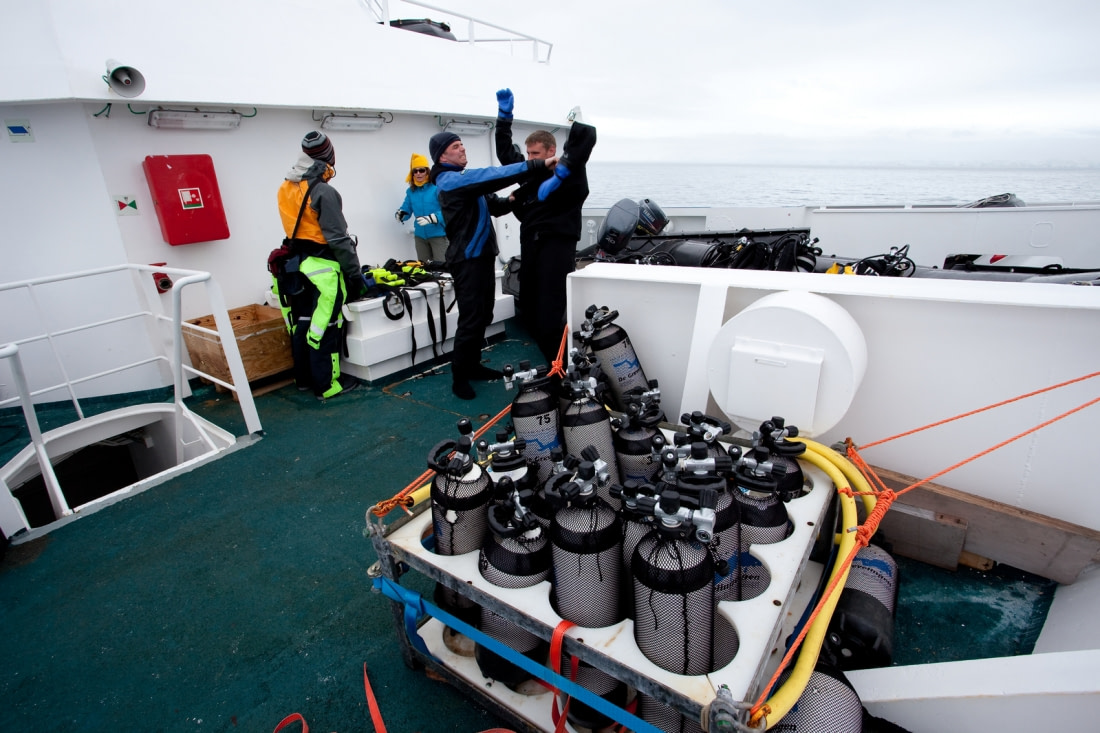Most scuba divers are drawn to warm waters and tropical reefs, and it's easy to see why. However, even the most thrilling experiences can become repetitive if done too often.
Now, imagine diving into a realm that only a select few have ever witnessed—a glacial world so uniquely stunning that only a handful of seasoned cold-water divers get to explore it. This is the allure, challenge, and unparalleled reward of polar diving. For a glimpse of this extraordinary experience, check out our Antarctic diving video at the end.
For now, let's delve into the benefits and specifics of this unique polar sport...
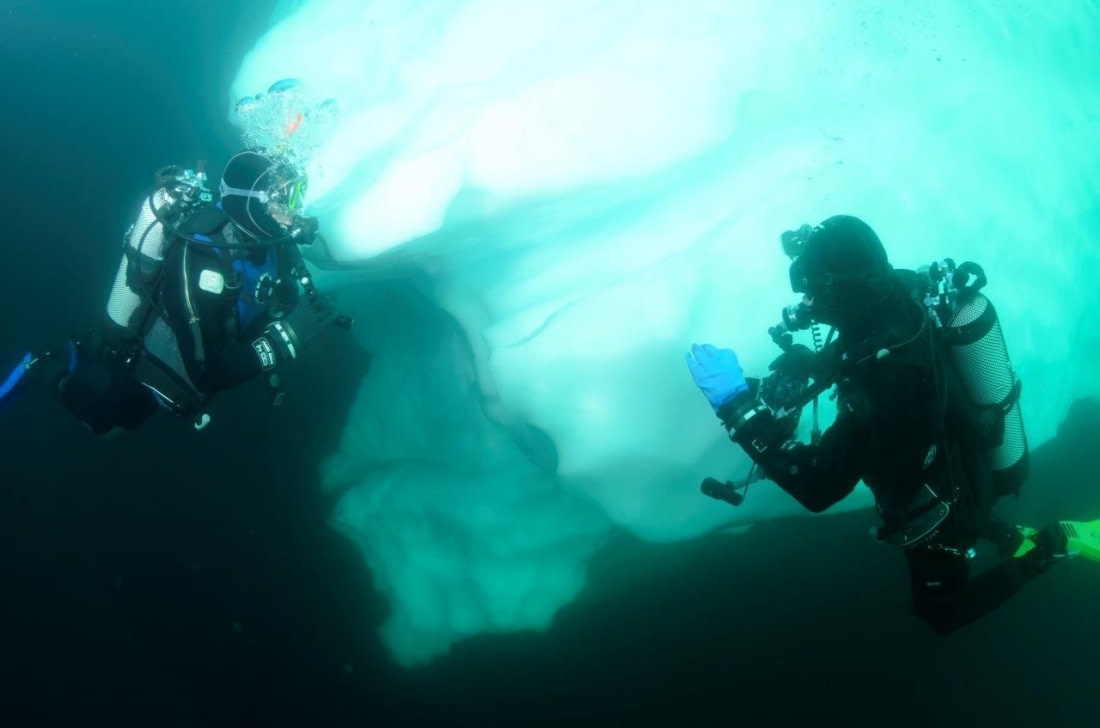
The rich rewards of polar diving
The icy waters of the Arctic and Antarctic regions host a diverse array of marine life that you won't find anywhere else. The various ice formations create a vibrant display of colors and patterns that are truly one-of-a-kind.
Among the fascinating creatures you might encounter are sea squirts, squat lobsters, dogfish, sea butterflies, and shrubby horsetails. In the Arctic, you may see common seals, while in Antarctica, you could swim alongside seals like leopard seals and even some penguin species. We hope you get to see them all!
However, please remember that we cannot guarantee sightings of these animals, whether above or below the water. In the polar regions, nature dictates the terms, not us.
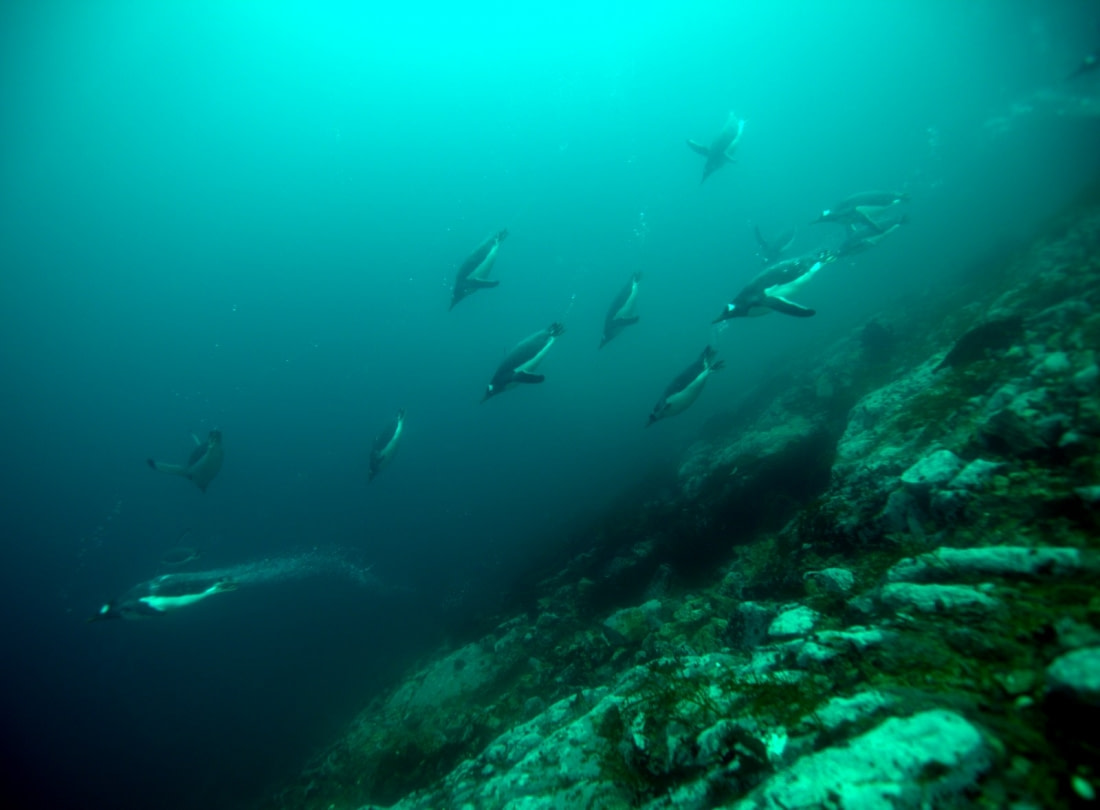
Polar diving equipment
Scuba diving always requires preparation, caution, and the right equipment. Cold-water diving demands even more attention to these aspects. Keeping the body warm is crucial, as standard diving gear doesn't function well in near-freezing temperatures.
Traditional wetsuits are insufficient for polar diving in Antarctica or the Arctic. Dry suits are necessary, featuring sealing systems designed to keep divers dry.
Cold-water regulators are also essential, as they are built to resist freezing and ensure proper air flow. For those seeking extra comfort, heated diving undergarments can maintain your body temperature at Caribbean levels.
Experience in polar diving
Polar diving requires more experience than traditional scuba diving, and our safety regulations reflect this. In addition to holding an internationally recognized scuba certificate, polar divers must verify at least 30 logged cold-water dives before participating in our polar diving program.
This requirement is due to the unique dangers of the polar environment. For instance, the frigid water can cause regulators to free-flow air, so divers need to practice handling this issue. Hypothermia is another risk, making it crucial to recognize its symptoms and abort the dive if necessary.
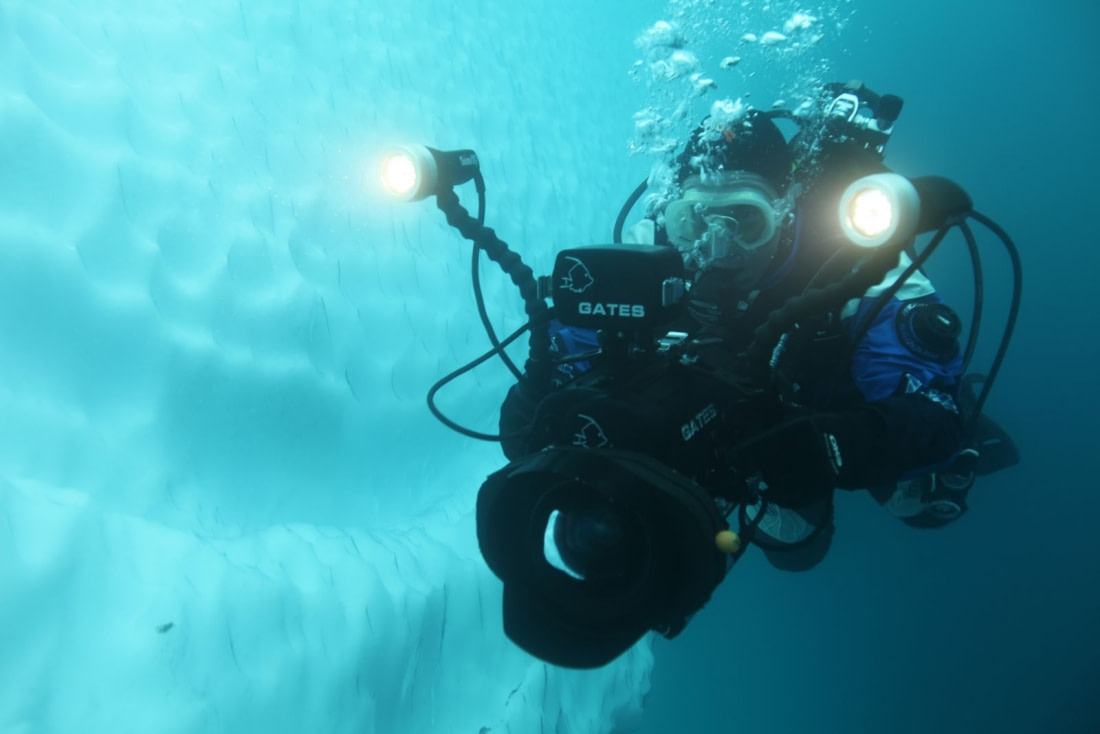
Polar diving conditions
All dives should have a comprehensive dive plan, but this is even more critical for polar diving.
Our polar dive leaders are highly trained experts with extensive experience in diving in Antarctica and the Arctic. Given the unpredictable ice and weather conditions in these regions, we always have a solid strategy for entries and exits, considering the possibility of shifting surface ice, blizzards, and katabatic winds (in Antarctica).
As anyone who has taken an Antarctica cruise or Arctic trip can attest, flexibility is key in the polar regions. You can learn more about gear, safety, and dive conditions on our polar diving page.
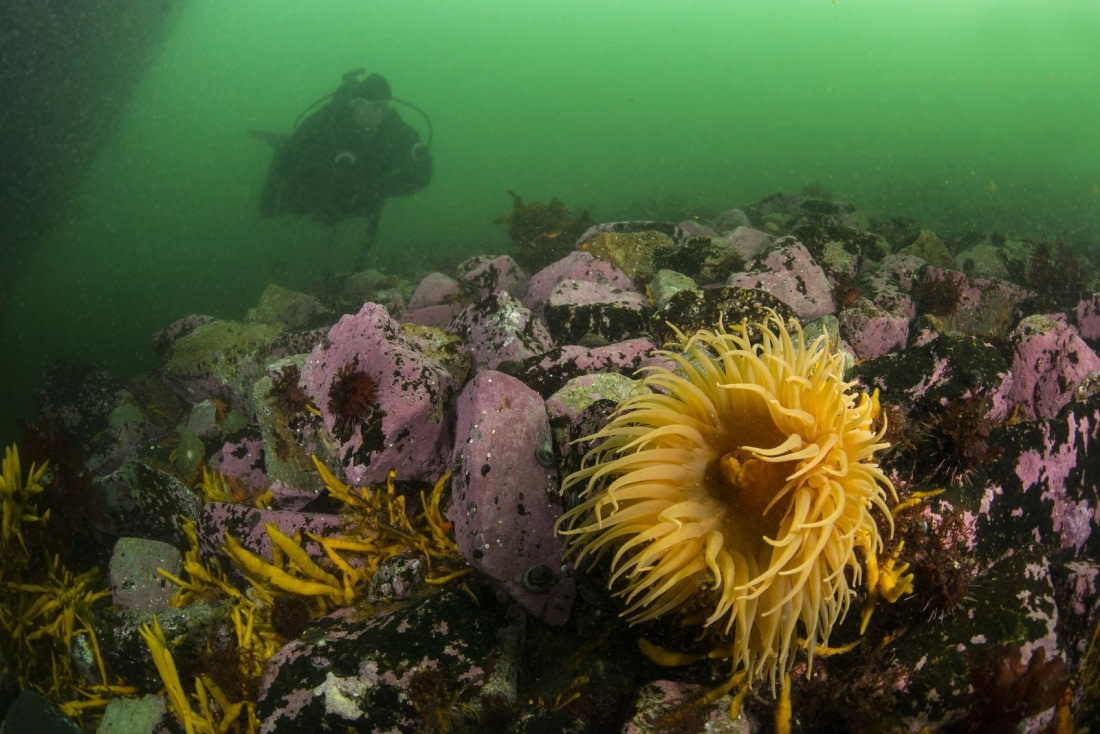
A word about polar wreck diving
One of the perks of the cold polar waters is their ability to preserve shipwrecks. Wreck diving is a favorite among our divers, and for good reason.
In Antarctica's Wilhelmina Bay, we offer dives to the remains of the historic whaling ship, Guvernøren, which sank in 1915 under mysterious circumstances that remain unexplained. The above-water scenery and wildlife in Wilhelmina are also breathtaking. Even if you don't dive here, you won't be disappointed.
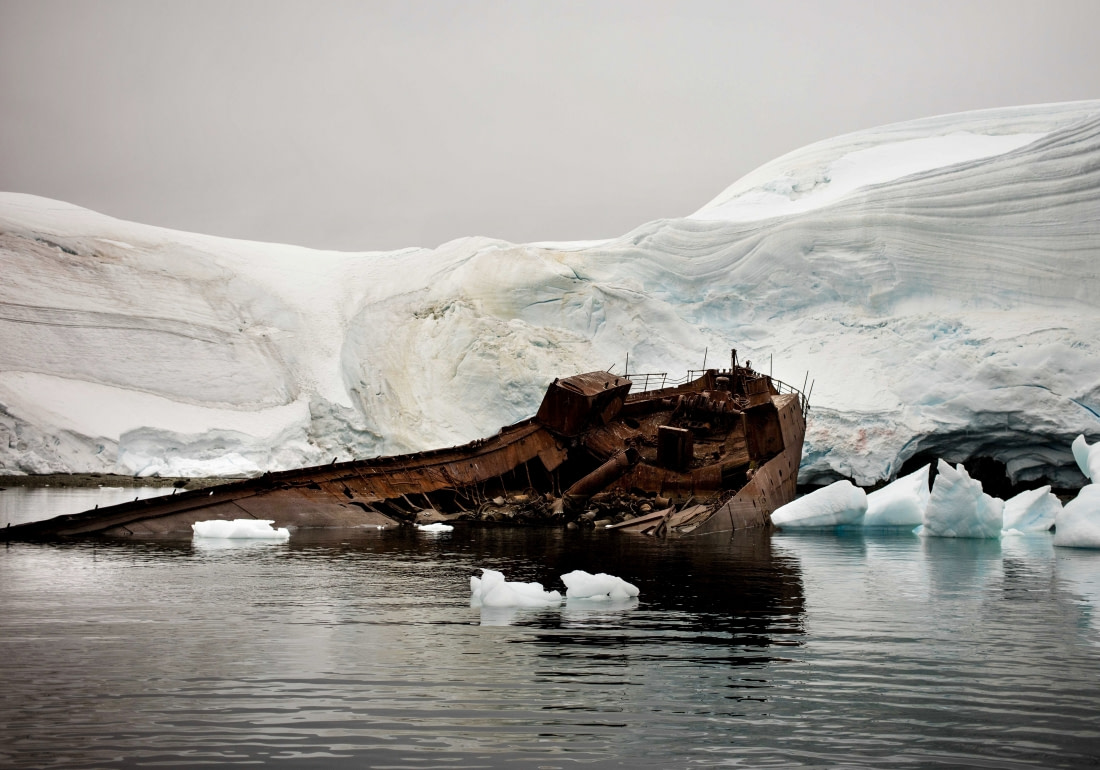
Experience polar diving in motion pictures
We promised you a video, and here it is.
While this clip focuses on Antarctic diving, remember that we also offer numerous fantastic Arctic options. Until you join us on a polar diving adventure in either region, let this video ignite your passion for icy underwater exploration!
Blog



Arctic Foxes: Constant Gardeners of the Arctic
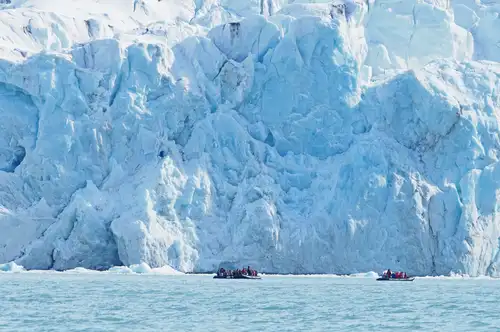
All About Ice: Glaciers and Icebergs of the Arctic and Antarctica

Why You Should Visit Greenland: 11 Things to See, Do, and Explore
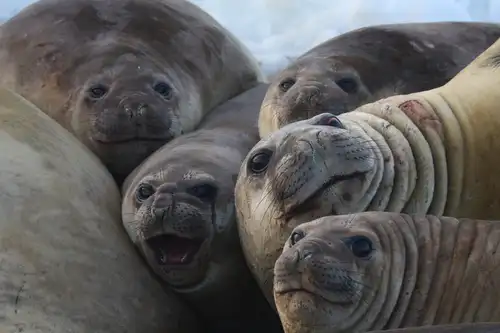
Large and in Charge: Antarctica’s Southern Elephant Seals
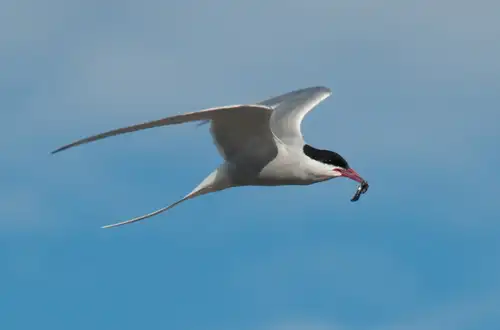
Birding Opportunities Abound in Spitsbergen
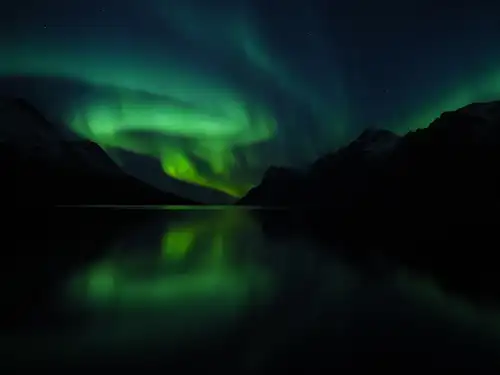
10 Illuminating Facts about the Northern Lights
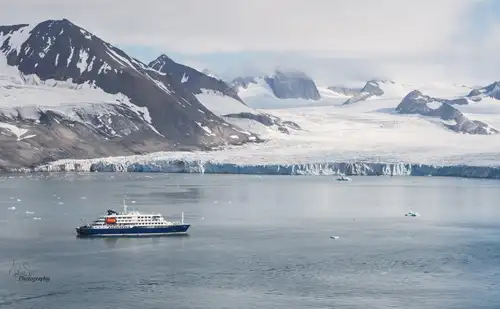
What’s so Special about East Spitsbergen?
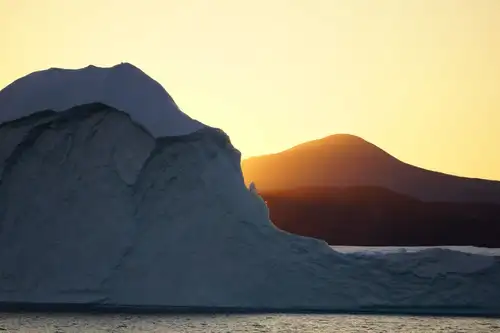
Light in the Land of the Midnight Sun
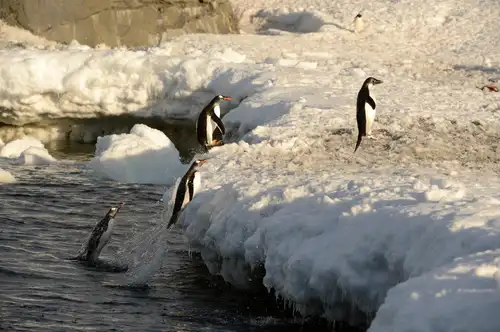
10 Terrific Antarctic Bird Facts
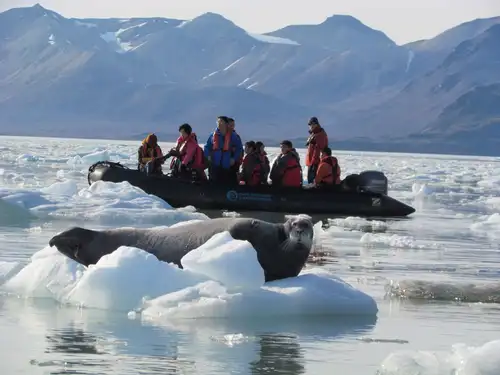
Six Seal Species You Might See On Your Greenland Cruise

The Impact of Small vs. Large Cruise Ships

Wreck Diving in Antarctica
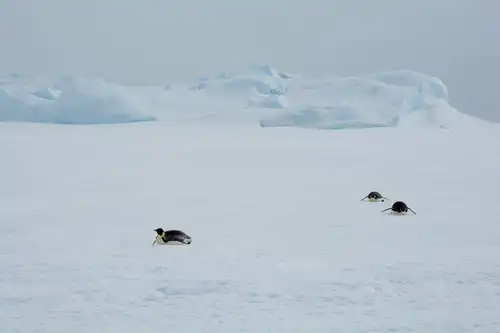
Encounter with the emperor penguin in Antarctica
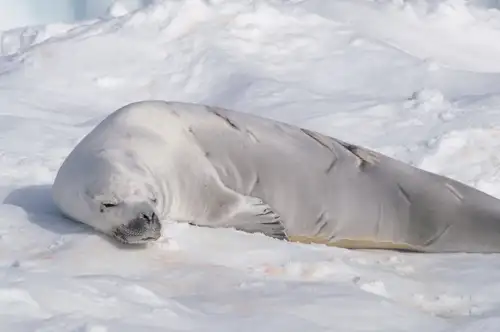
Six Facts About the Crabeater Seals of Antarctica

Six Must-See Svalbard Sites
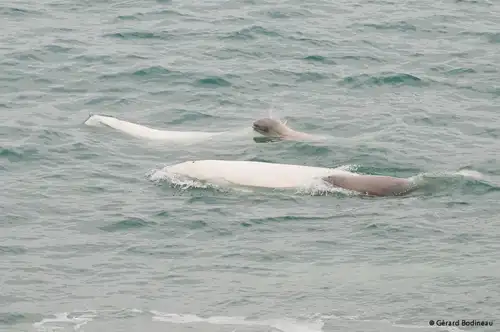
The Mysteries of the Beluga Whale
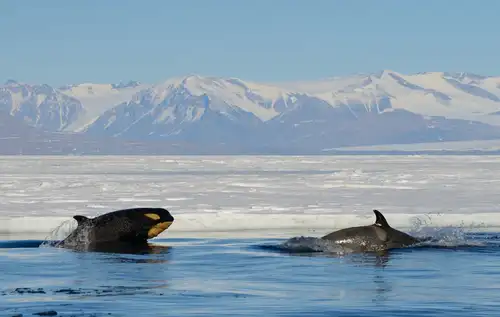
Orcas (aka Killer Whales) of Antarctica and the sub-Antarctic
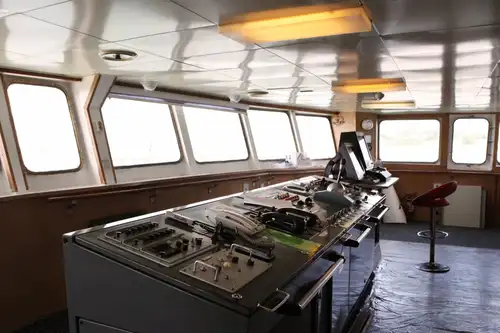
Navigating by touch through the sea ice

Polar Cuisine in Pictures
